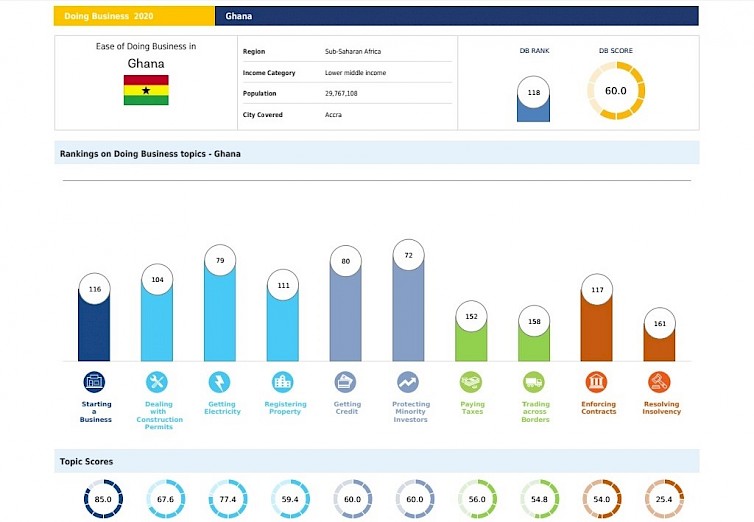COVID 19 Diaries - Investment Tips To Follow After COVID
During the past week, I had an online chat with an entrepreneur friend of mine who is planning to come explore Ghana’s investment opportunities, right after this COVID-19 crisis.
Our conversation echoed some of the frequently expressed concerns many local investors have shared about doing business in the country; some of these concerns are an interesting cocktail of fact, presumption and wild rumours.
I wonder what your thoughts are on the matter of how easy or otherwise it is to do business in this country.
Today, we will take a closer look at this subject with the help of the World Bank’s Doing Business 2020 report on Ghana, which profiles the country’s economy by analysing business regulations that apply to domestic small and medium-sized companies throughout their life cycles.
The report also provides data on certain features of workers’ employment such as hiring, working hours and redundancy; as well as valuable insight into the process, time and cost of contracting with the government.
The most recent report ranked Ghana 118 out of 190 countries after taking into account the processes that govern the following activities and qualitative indicators:
- Starting a business
- Dealing with construction permits
- Getting electricity
- Registering property
- Getting credit
- Protecting minority investors
- Paying taxes
- Trading across borders
- Enforcing contracts
- Resolving insolvency
The image presents an overview of Ghana’s report in addition to its Doing Business Rank and Score.

Source: World Bank. 2020. Doing Business 2020: Comparing Business Regulation in 190 Economies. Washington, DC: World Bank. © World Bank. https://openknowledge.worldbank.org/handle/10986/32436 License: CC BY 3.0 IGO.
The World Bank’s Doing Business 2020 report on Ghana is not only a comprehensive analysis of critical aspects of the country’s business regulation: it also serves as a stimulus for healthy competition among economies by highlighting areas that require regulatory improvement to create more attractive conditions for both local and foreign investment.
For example, Ghana’s average score was 60 across all the indicators.
The country’s highest score of 85 (out of 100) was with respect to starting a business, a process which takes 13 days compared to a sub-Saharan average of 21.5 days. However, it is easier to start a business in neighbouring countries such as Cote d’Ivoire, which scored 93.7, and Burkina Faso, which scored 88.2.
The country’s lowest score of 25.4 (out of 100) was with respect to resolving insolvency as compared to countries such as Cote d’Ivoire, Mali and Benin with scores of 47.9, 43.4 and 41.0 respectively.
One reason for this low score was because the strength of Ghana’s insolvency framework index measured 4.0 on a scale of 0 to 16, compared to a sub-Saharan average of 6.5.
I Invite you to check for yourself: www.doingbusiness.org/en/data/exploreeconomies/ghana
What does all this mean for you as a local or foreign investor?
It offers you the opportunity to make an informed decision before undertaking any business venture in Ghana based on thorough research and relevant data, instead of solely hearsay and other people’s experiences.
This will also allow you to make appropriate, realistic preparations for investing in Ghana, Africa’s fastest-growing economy. Like investing in the new hotel apartment concept as investment.
I encourage you to take a closer look at the Doing Business 2020 report to better appreciate its objective assessment of Ghana’s business regulations.
Until we look at more ‘pictures of Ghana’, please remember that this corona crisis will pass, just because there is always sunshine after rain.
And, for now, are you crying because of the corona “rain” or, just like my friend, you are already planning your next sunny investment days?
Look forward to hearing your thoughts via email at jorge.osorio@DevtracoGroup.com.

Author: Jorge Osorio is Sales and Marketing Director at Devtraco Group (www.DevtracoGroup.com)